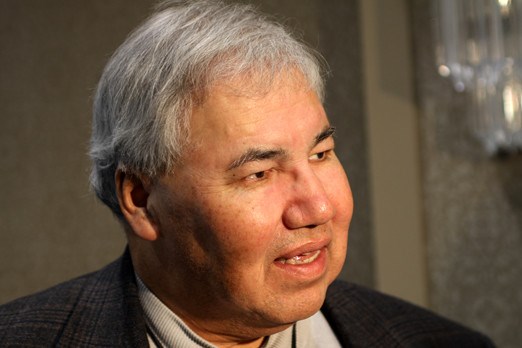While forgiveness was discussed during the final day of the Truth and Reconciliation Commission in Thunder Bay, leaders there hope people never forget.
The three-day event wrapped up Friday with speeches from church, community and First Nations leaders. Nishnawbe Aski Nation Grand Chief Stan Beardy said survivors are trying to get closure on what happened to them during their time in residential schools.
Some survivors and their family are having difficulty forgiving the federal government and churches for their roles in residential schools, but Beardy said acknowledging the past is important and that people can’t continue to be stuck there.
"By holding bitterness and anger within ourselves it prevents us as a race of people, as a group of people, to be able to move forward," Beardy said.
But Beardy said it has taken seven generations to get the TRC and having survivors share their stories. Learning about the past can show how deep the negative impacts of residential schools have scarred First Nations people, Beardy said.
"Everything you see about First Nations people – the reserve system, poverty, underachievement in education, health problems, prescription drug abuse, the high population in jails – all that stems from our experiences in residential schools," Beardy said.
St. Thomas Anglican Church Arch Deacon Andrew Hoskin said he was at the event primarily to listen.
Hoskin said he’s heard from many survivors that they forgive the church for its hand in residential schools, but the stories were still difficult to hear.
"Some of the things I heard were very devastating and I must say (left me) feeling sorrowful for the part the church played in some of those things and particularly some of the individuals perpetrated," Hoskins said.
Hoskins said a large number of First Nations people are United Church members and clergy.
"It’s been a wrestle for some of them because of that but they found the healing they needed," Hoskin said.
TRC chair Murray Sinclair said reconciliation can mean different things for different people affected by residential schools. Survivors reconciling with the government and church or First Nations people in general reconciling with those institutions for their loss of language and culture will be hard to quantify for the TRC, he said.
"Reconciliation is a difficult issue to define," Sinclair said.
Getting the truth will be difficult for the TRC as well said Sinclair. One "grave concern" is that the TRC won’t be able to hear from all of the more than 100,000 survivors. Some are reluctant to tell their stories and a lot of them are too old to travel to the commissions.
"Within a generation we’ll probably lose most of the survivors the average age is fairly high," he said.
"The numbers are dwindling each day."
Once the stories are gathered and the TRC mandate expires in four years, Sinclair said a discussion needs to take place so people can figure out the best way to get the information out.
"Putting it in a report is going to be an individual to put it on a shelf," Sinclair said.
One way the TRC are making sure the stories are heard is to encourage educators to include it in school curriculum so that future generations will know what happened.
Sign in or register
- Messages
- Post a Listing
- Your Listings
- Your Profile
- Your Subscriptions
- Your Likes
- Your Business
- Support Local News
- Payment History
Registered Users
Already have an account?
New Users
Create a free account.
